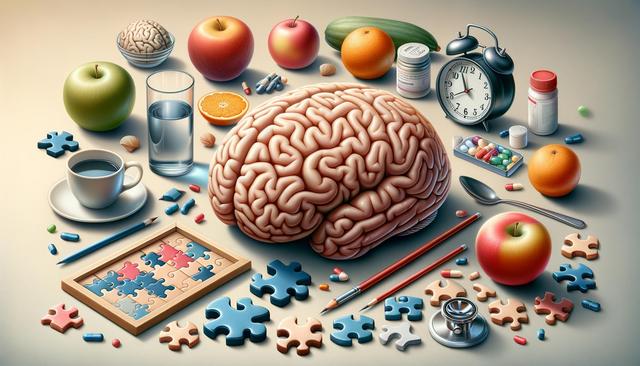What Is Dementia?
Dementia is not a single disease but an umbrella term used to describe a range of neurological conditions that affect the brain. These conditions lead to deterioration in cognitive function, beyond what might be expected from normal ageing. The most common cause of dementia is Alzheimer’s disease, but other types include vascular dementia, Lewy body dementia, and frontotemporal dementia. Each type has unique characteristics, but they all share similar symptoms that impact daily life. Dementia primarily affects older adults, but it’s not a normal part of ageing. Early diagnosis can greatly improve quality of life by allowing individuals and their families to plan and manage the condition effectively.
Common Symptoms and Early Warning Signs
Dementia symptoms can vary depending on the type and stage of the disease. However, there are several common signs that may indicate the development of dementia. Recognizing these early can help with timely medical intervention. Some of the most frequently observed symptoms include:
- Memory loss that disrupts daily activities
- Difficulty in planning or solving problems
- Confusion with time or place
- Problems with speaking or writing
- Misplacing things and inability to retrace steps
- Changes in mood, personality, or behavior
It’s important to note that occasional forgetfulness does not necessarily indicate dementia. However, if memory issues are persistent and accompanied by other cognitive difficulties, a medical evaluation is advisable. These symptoms can also affect the ability to focus, make judgments, or carry out routine tasks like cooking or managing finances.
Diagnosing Dementia
Diagnosing dementia involves a comprehensive assessment by a healthcare provider, often including a neurologist or geriatrician. There is no single test for dementia, so doctors rely on a combination of assessments to make a diagnosis. These may include:
- Medical history and physical examination
- Neurological tests to assess reflexes, balance, and sensory function
- Cognitive and neuropsychological tests
- Brain imaging (MRI or CT scans)
- Blood tests to rule out other causes
Early diagnosis is essential as it allows for more effective symptom management and gives patients and families the opportunity to plan for the future. In some cases, reversible conditions such as vitamin deficiencies or thyroid problems can mimic dementia symptoms, making proper diagnosis crucial.
Treatment and Management Options
While there is currently no cure for most types of dementia, several treatments can help manage symptoms and improve quality of life. Treatment plans are usually tailored to the individual and may include a combination of medication, therapy, and lifestyle modifications. Common treatment strategies include:
- Medications to manage memory loss, confusion, and behavioral symptoms
- Occupational therapy to help maintain independence
- Cognitive stimulation and memory exercises
- Structured routines and environmental adjustments
Supportive therapies such as music therapy, art therapy, and physical exercise have also shown positive effects in some individuals. In addition, family education and counseling can be invaluable for those caring for someone with dementia, helping them cope with emotional and practical challenges.
Living With Dementia and Supporting Loved Ones
Living with dementia can be challenging, both for the person affected and their caregivers. Creating a dementia-friendly environment is key to maintaining safety and comfort. Simple changes, such as labeling doors or using clocks with large numbers, can make a significant difference. Social interaction and mental stimulation are also crucial in slowing cognitive decline. Support for caregivers is equally important, as the emotional and physical demands can be overwhelming at times. Local support groups, respite care services, and professional counseling can provide much-needed relief.
Involving the person with dementia in decisions about their care, when possible, helps maintain their dignity and autonomy. Clear communication, patience, and empathy are essential when interacting with someone living with the condition. As the disease progresses, needs will change, making flexibility and ongoing support vital components of care.


